-
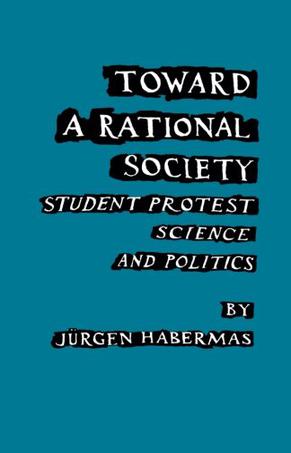
Toward a Rational Society
Knowledge, communication, action – These are the concepts central to all of Habermas's thought. As a philosopher, he is concerned with the rational connections of these concepts. As a sociologist, he is prepared to analyze with care the distortions of human interactions caused by existing social and political institutions. In a series of connected essays, the author assesses the function of the contemporary university, and sharply analyzes contemporary students and their political efforts. He then brilliantly analyzes as a communications model the relationships between research institutes and the political agencies which employ them. The book concludes with a complex discussion of technology and science as an "ideology," dedicated to Herbert Marcuse. Critical parts of Marcuse's thought, Habermas dissects contemporary democratic dialogue and offers an important preliminary sketch of a general theory of social evolution. He analyzes the difference between the technological sphere of control and the practical sphere of communication and interaction as the basic feature of human social life, and explains how and why the predominance of the technological sphere is the distinguishing and alienating characteristic of advanced industrial society. The concepts of depoliticization and the freeing of communication emerge as the crux of today's political situation. -
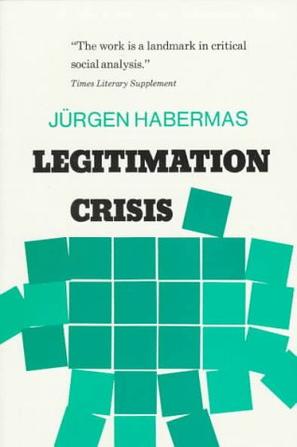
Legitimation Crisis
Critical Theory originated in the perception by a group of German Marxists after the First World War that the Marxist analysis of capitalism had become deficient both empirically and with regard to its consequences for emancipation, and much of their work has attempted to deepen and extend it in new circumstances. Yet much of this revision has been in the form of piecemeal modification. In his latest work, Habermas has returned to the study of capitalism, incorporating the distinctive modifications of the Frankfurt School into the foundations of the critique of capitalism. Drawing on both systems theory and phenomenological sociology as well as Marxism, the author distinguishes four levels of capitalist crisis - economic, rationality, legitimation, and motivational crises. In his analysis, all the Frankfurt focus on cultural, personality, and authority structures finds its place, but in a systematic framework. At the same time, in his sketch of communicative ethics as the highest stage in the internal logic of the evolution of ethical systems, the author hints at the source of a new political practice that incorporates the imperatives of evolutionary rationality. -
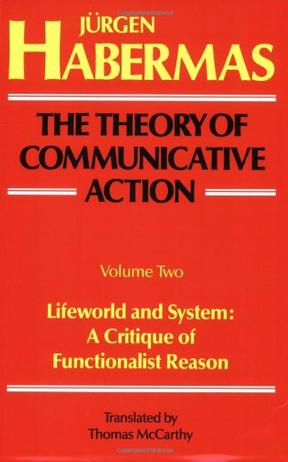
The Theory of Communicative Action
"One of the broadest, most comprehensive, elaborate and intensely theoretical works in social theory. Social theory and philosophy may never be the same again." (Philosophy and Social Criticism) -
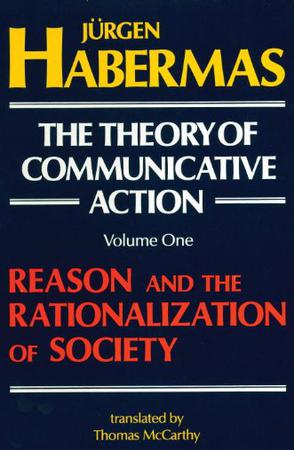
The Theory of Communicative Action
A major contribution to contemporary social theory. Not only does it provide a compelling critique of some of the main perspectives in 20th century philosophy and social science, but it also presents a systematic synthesis of the many themse which have preoccupied Habermas for thirty years. --Times Literary Supplement -
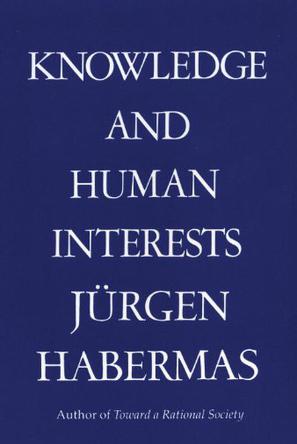
Knowledge and Human Interests
"For those concerned with the relationships between thought and action, KNOWLEDGE AND HUMAN INTERESTS will quickly be recognized as a brilliant book -- and a bold outline for a new social theory." (Times Literary Supplement) -
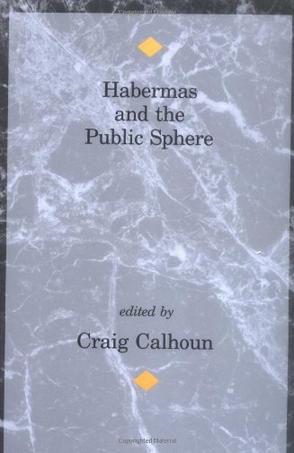
Habermas and the Public Sphere
The relationship between civil society and public life is in the forefront of contemporary discussion. No single scholarly voice informs this discussion more than that of Jurgen Habermas. His contributions have shaped the nature of debates over critical theory, feminism, cultural studies, and democratic politics. In this book, scholars from a wide range of disciplines respond to Habermas's most directly relevant work, The Structural Transformation of the Public Sphere. From political theory to cultural criticism, from ethics to gender studies, from history to media studies, these essays challenge, refine, and extend our understanding of the social foundations and changing character of democracy and public discourse.Craig Calhoun is Professor of Sociology and History and Director of the Program of Social Theory and CrossCultural Studies at the University of North Carolina at Chapel Hill.Contributors: Hannah Arendt. Keith Baker. Seyla Benhabib. Harry C. Boyte. Craig Calhoun. Geoff Eley. Nancy Fraser. Nicholas Garnham. Jurgen Habermas. Peter Hohendahl. Lloyd Kramer. Benjamin Lee. Thomas McCarthy. Moishe Postone. Mary P. Ryan. Michael Schudson. Michael Warner. David Zaret.